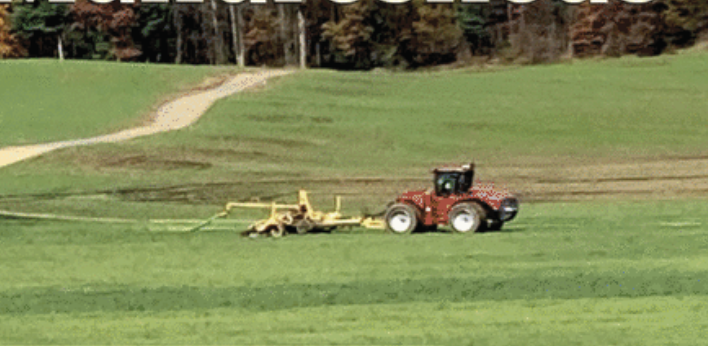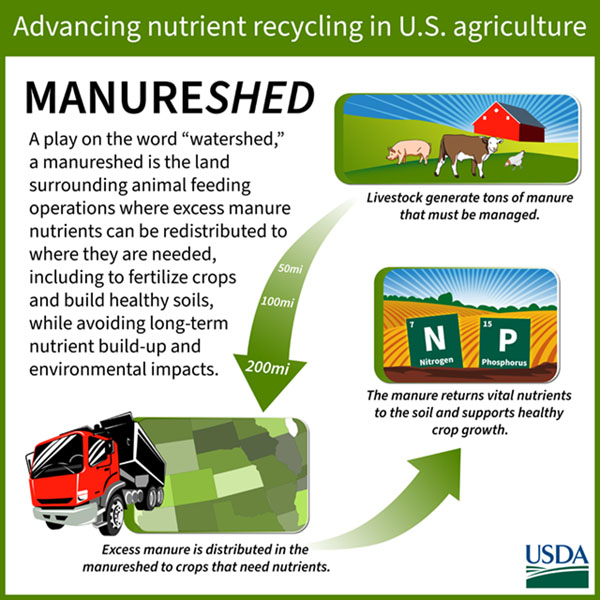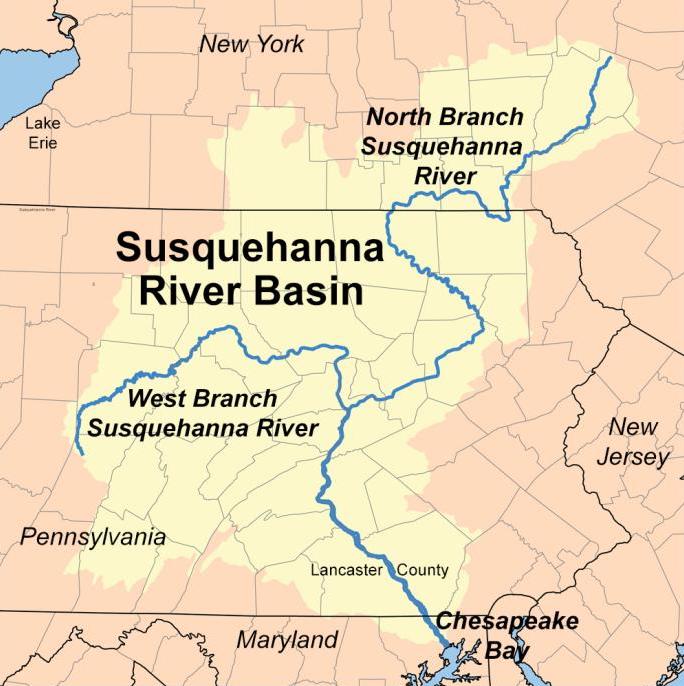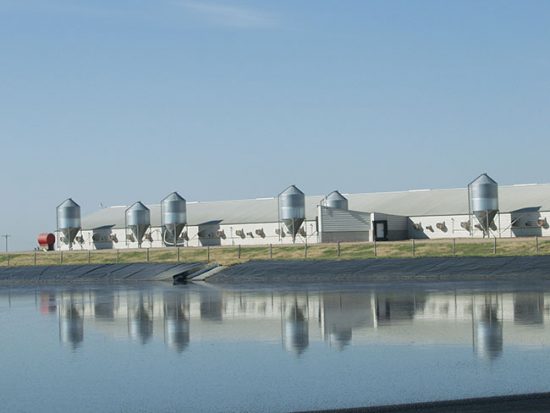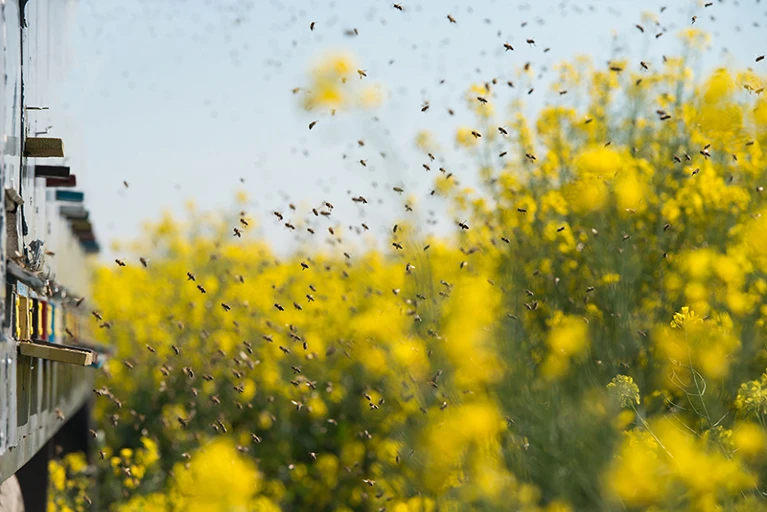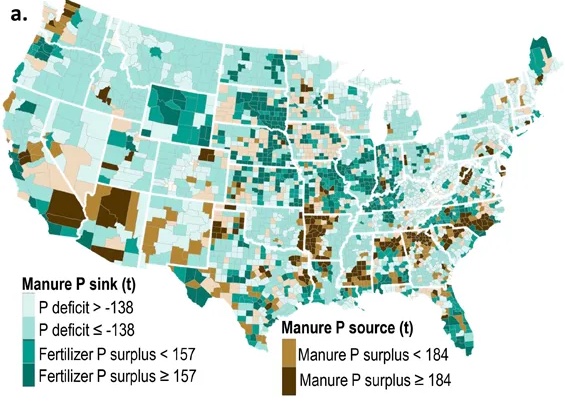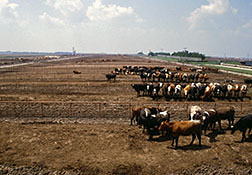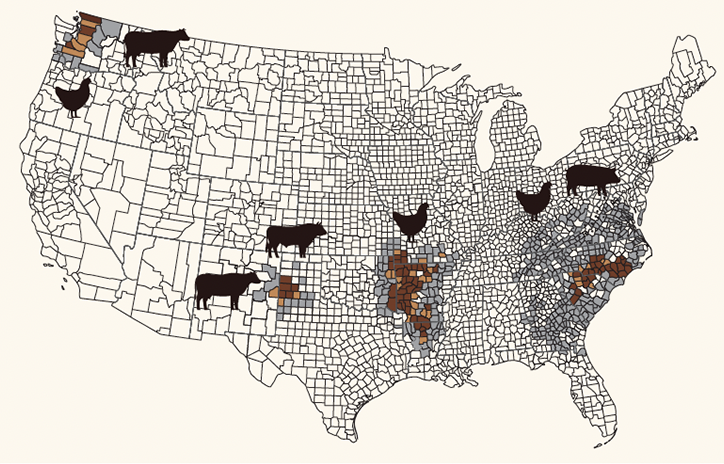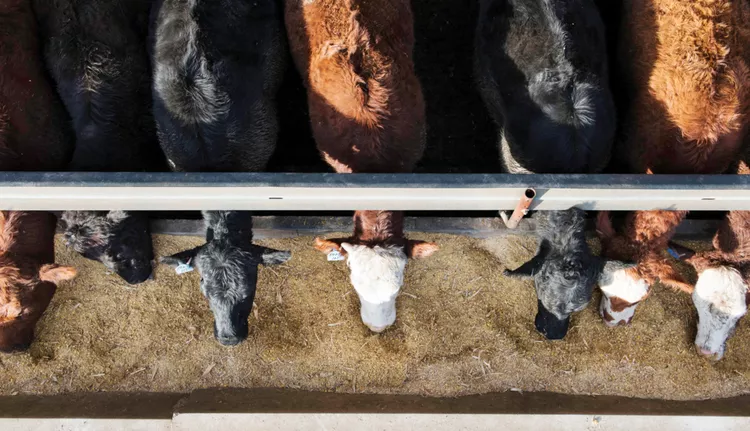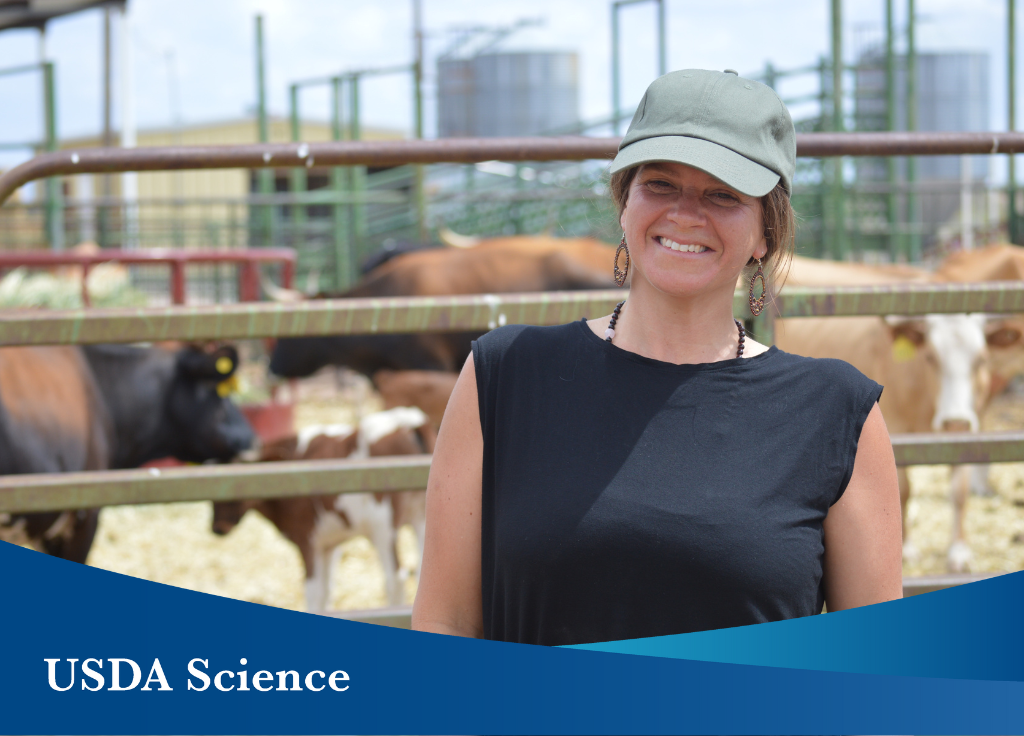Working Group: Manureshed
What is a manureshed?
Purpose
LTAR’s Manureshed Working Group is catalyzing innovation in livestock and crop systems so that manure can be efficiently and sustainably used as fertilizer. The strategic redistribution and recycling of manure provides a solution to some of the greatest production and conservation challenges facing US agriculture, while promoting climate change adaptation and mitigation. LTAR’s manureshed working group envisions a circular livestock and cropping system economy that is achieved through comprehensive and coordinated sustainable development strategies.
Upcoming Events
- Manureshed Action Network (Lunch Discussions to Envision Optimal Nutrient Distribution) – January 28 2025 (Sauk Centre, MN), January 30 2025 (Mankato MN), April TBD
- Manureshed Action Network (Lunch Discussions to Envision Optimal Nutrient Distribution) – February 18-20 2025 (Clovis, NM), Spring 2025 TBD (Santa Fe, NM), Spring 2025 TBD (Clovis, NM)
Current efforts (2023)
Cross-Site Experiment: An experiment at 13+ sites across the U.S. and Canada to understand how manureshed priorities affect land application research, and to compare the environmental effects of land application in a variety of settings.
- Manureshed Action Network: An action-oriented research cycle designed to understand the distribution of manure sources and potential sinks, and to envision and empower optimal solutions for nutrient distribution. Funded by the Foundation and Food and Agriculture and the Sustainable Southwest Beef Coordinated Agricultural Project. All agri-food system stakeholders are invited to participate! Contact Sheri.Spiegal@usda.gov.
- Manure treatment technologies: Leveraging partnerships with researchers, companies, and consultants who are working to improve the storage, transport, and nutrient availability of manures.
References
Publications from the Manureshed Working Group:
- Booth, E.G., Kucharik, C.J., 2021. Data inaccessibility at sub-county scale limits implementation of manuresheds. Journal of Environmental Quality. https://doi.org/10.1002/jeq2.20271
- Bryant, R.B., Endale, D.M., Spiegal, S.A., Flynn, K.C., Meinen, R.J., Cavigelli, M.A., Kleinman, P.J., 2021. Poultry manureshed management: Opportunities and challenges for a vertically integrated industry. Journal of Environmental Quality. https://doi.org/10.1002/jeq2.20273
- Dell, C., Baker, J., Spiegal, S., Porter, S., Leytem, A., Flynn, K.C., Rotz, C.A., Bjorneberg, D., Bryant, R.B., Hagevoort, G.R., 2022. Challenges and opportunities for manureshed management across US dairy systems: Case studies from four regions. Journal of Environmental Quality. https://doi.org/10.1002/jeq2.20341
- Flynn, K.C., Spiegal, S., Kleinman, P.J., Meinen, R.J., Smith, D.R., 2023. Manureshed management to overcome longstanding nutrient imbalances in US agriculture. Resources, Conservation and Recycling 188, 106632. https://doi.org/10.1016/j.resconrec.2022.106632
- Flynn, K.C., Lee, T., Endale, D., Franzluebbers, A., Ma, S., Zhou, Y., 2021. Assessing Remote Sensing Vegetation Index Sensitivities for Tall Fescue (Schedonorus arundinaceus) Plant Health with Varying Endophyte and Fertilizer Types: A Case for Improving Poultry Manuresheds. Remote Sensing 13, 521. https://doi.org/10.3390/rs13030521
- Kleinman, P.J., Spiegal, S., Liu, J., Holly, M., Church, C., Ramirez-Avila, J., 2020. Managing animal manure to minimize phosphorus losses from land to water. Animal Manure: Production, Characteristics, Environmental Concerns, and Management 201–228. https://doi.org/10.2134/asaspecpub67.c12
- Kleinman, P.J., Spiegal, S.A., Silviera, M.L., Baker, J.M., Dell, C.J., Bittman, S., Cibin, R., Vadas, P.A., Buser, M.D., Tsegaye, T., 2022. Envisioning the manureshed: Toward comprehensive integration of modern crop and animal production. Journal of Environmental Quality 51, 481–493. https://doi.org/10.1002/jeq2.20382
- Meinen, R., Spiegal, S., Kleinman, P.J., Flynn, K.C., Goslee, S.C., Mikesell, R.E., Church, C., Bryant, R.B., Boggess, M., 2022. Opportunities to implement manureshed management in the Iowa, North Carolina, and Pennsylvania swine industry. Journal of Environmental Quality. https://doi.org/10.1002/jeq2.20340
- Meredith, G.R., Spiegal, S., Kleinman, P.J., Harmel, D., 2022. The social networks of manureshed management. Journal of Environmental Quality 51, 566–579. https://doi.org/10.1002/jeq2.20334
- Saha, G.K., Cibin, R., Elliott, H., Gall, H., Shortle, J., Alber, D., 2018. Geospatial landscape analysis for livestock manure management in Western Pennsylvania, in: 2018 ASABE Annual International Meeting Abstracts. American Society of Agricultural and Biological Engineers. https://doi.org/10.13031/aim.201801218
- Saha, A., Saha, G.K., Cibin, R., Spiegal, S., Kleinman, P.J., Veith, T.L., White, C.M., Drohan, P.J., Tsegaye, T., 2022. Evaluating water quality benefits of manureshed management in the Susquehanna River Basin. Wiley Online Library. https://doi.org/10.1002/jeq2.20429
- Spiegal, S., Kleinman, P.J., Endale, D.M., Bryant, R.B., Dell, C., Goslee, S., Meinen, R.J., Flynn, C., Baker, J., Browning, D., McCarty, G., Bittman, S., Carter, J., Cavigelli, M., Duncan, E., Gowda, P., Li, X., Ponce-Campos, G.E., Raj, C., Silveira, M., Smith, D.R., Arthur, D.K., Yang, Q., 2020. Manuresheds: Advancing nutrient recycling in US agriculture. Agricultural Systems 182, 102813. https://doi.org/10.1016/j.agsy.2020.102813
- Spiegal, S., Vendramini, J.M.B., Bittman, S., Silveira, M.L., Gifford, C., Rotz, C.A., Ragosta, J.P., Kleinman, P.J.A., 2022b. Recycling nutrients in the beef supply chain through circular manuresheds: Data to assess tradeoffs. Journal of Environmental Quality 51, 494–509. https://doi.org/10.1002/jeq2.20365
- Spiegal, S., Williamson, J.C., Flynn, K.C., Buda, A.R., Rotz, C.A., Kleinman, P.J., 2022. Land use change and collaborative manureshed management in New Mexico. Journal of Environmental Quality 51, 602–613. https://doi.org/10.1002/jeq2.20280
Datasets
- Meredith, G.R., Spiegal, S., Kleinman, P.J., 2022. Manure Cycling Interview Data. Environmental Data Initiative. https://doi.org/10.6073/pasta/d6adbc29d37e569e053ac74a8e14d582.
- Spiegal, S., Dramamine, J., Bittman, S., Silveira, M., Gifford, C., Rotz, C., Ragosta, J., P. Kleinman, 2022a. Data to explore circular manureshed management in beef supply chains of the United States and western Canada. Environmental Data Initiative. URL https://doi.org/10.6073/pasta/a81b6a2dd23a8b12360412c492fe8040
- Spiegal, S.A., Kleinman, P.J., Endale, D.M., Bryant, R.B., Dell, C.J., Goslee, S.C., Meinen, R.J., Flynn, K.C., Baker, J.M., Browning, D.M., McCarty, G.W., Bittman, S., Carter, J.D., Cavigelli, M.A., Duncan, E., Gowda, P.H., X., L., Ponce, G., Raj, C., Silveira, M., Smith, D.R., Arthur, D.K., Yang, Q., Nezat, C., Vandenberg, B.C., 2022. Manureshed delineation via analysis of county-level data from IPNI-NuGIS and USDA-NASS(2012). Ag Data Commons. https://doi.org/10.15482/USDA.ADC/1518435
Recent Press
Contact
Peter Kleiman: Peter.Kleinman@usda.gov
Sheri Spiegal: Sheri.Spiegal@usda.gov
ABOUT LTAR
The USDA Agricultural Research Service (ARS) Long-Term Agroecosystem Research network consists of 18 Federal and university agricultural research sites with an average of over 50 years of history. The goal of this research network is to ensure sustained crop and livestock production and ecosystem services from agroecosystems, and to forecast and verify the effects of environmental trends, public policies, and emerging technologies.
LINKS
ABOUT LTAR
The USDA Agricultural Research Service (ARS) Long-Term Agroecosystem Research network consists of 18 Federal and university agricultural research sites with an average of over 50 years of history. The goal of this research network is to ensure sustained crop and livestock production and ecosystem services from agroecosystems, and to forecast and verify the effects of environmental trends, public policies, and emerging technologies.
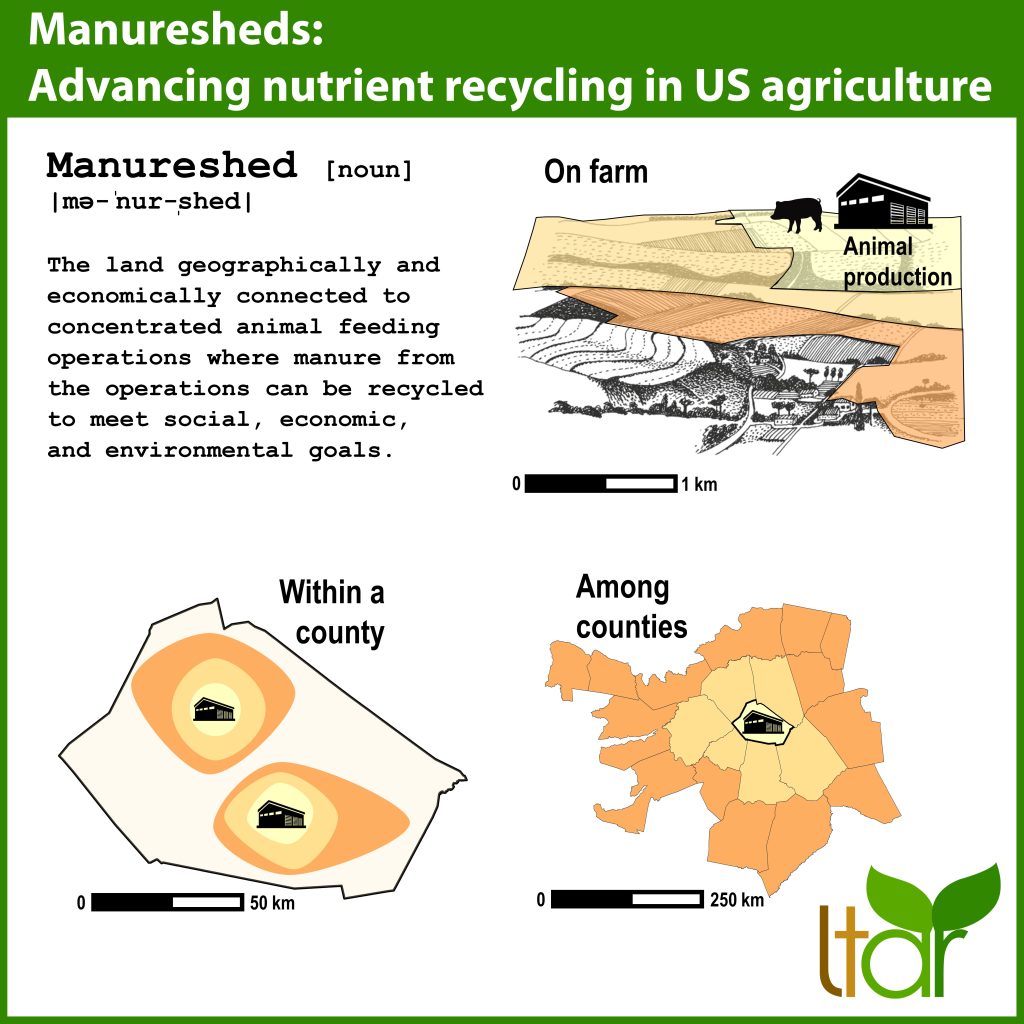
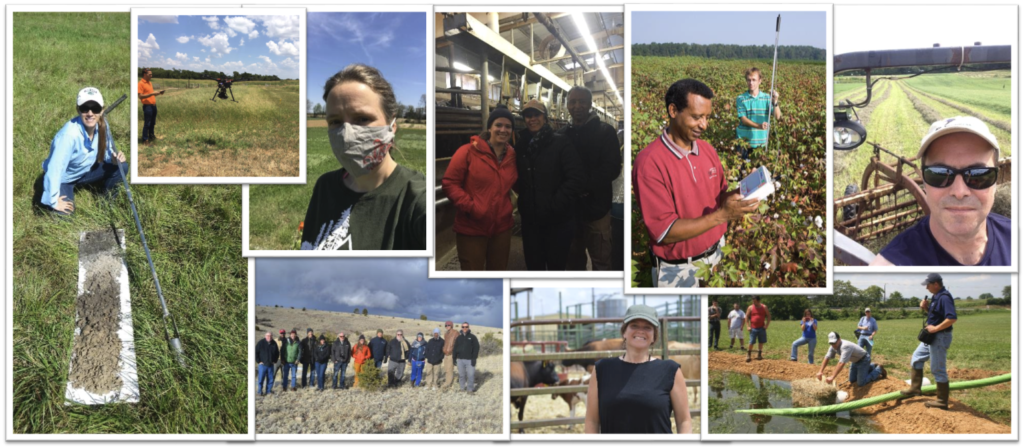 Cross-Site Experiment: An experiment at 13+ sites across the U.S. and Canada to understand how manureshed priorities affect land application research, and to compare the environmental effects of land application in a variety of settings.
Cross-Site Experiment: An experiment at 13+ sites across the U.S. and Canada to understand how manureshed priorities affect land application research, and to compare the environmental effects of land application in a variety of settings.
